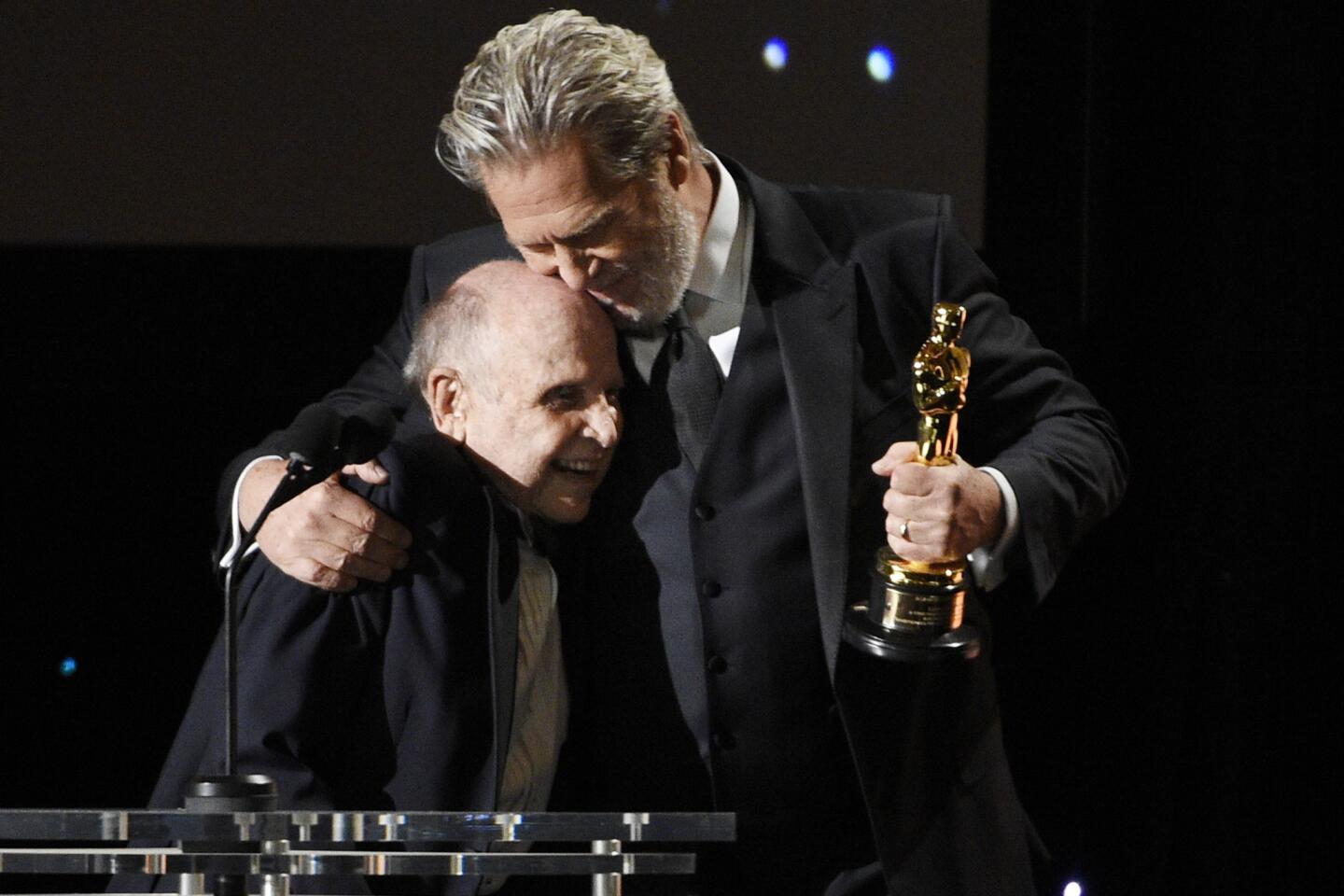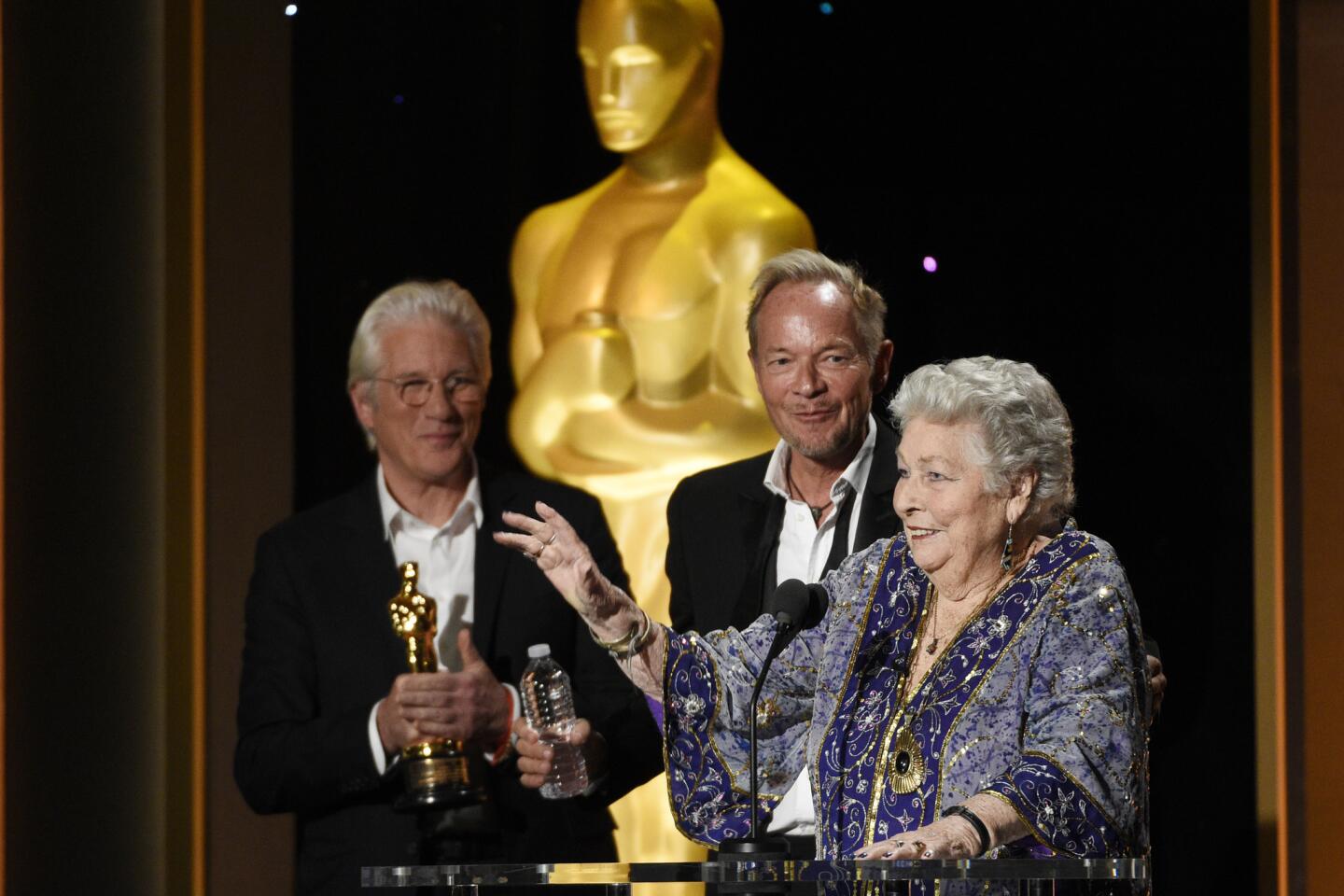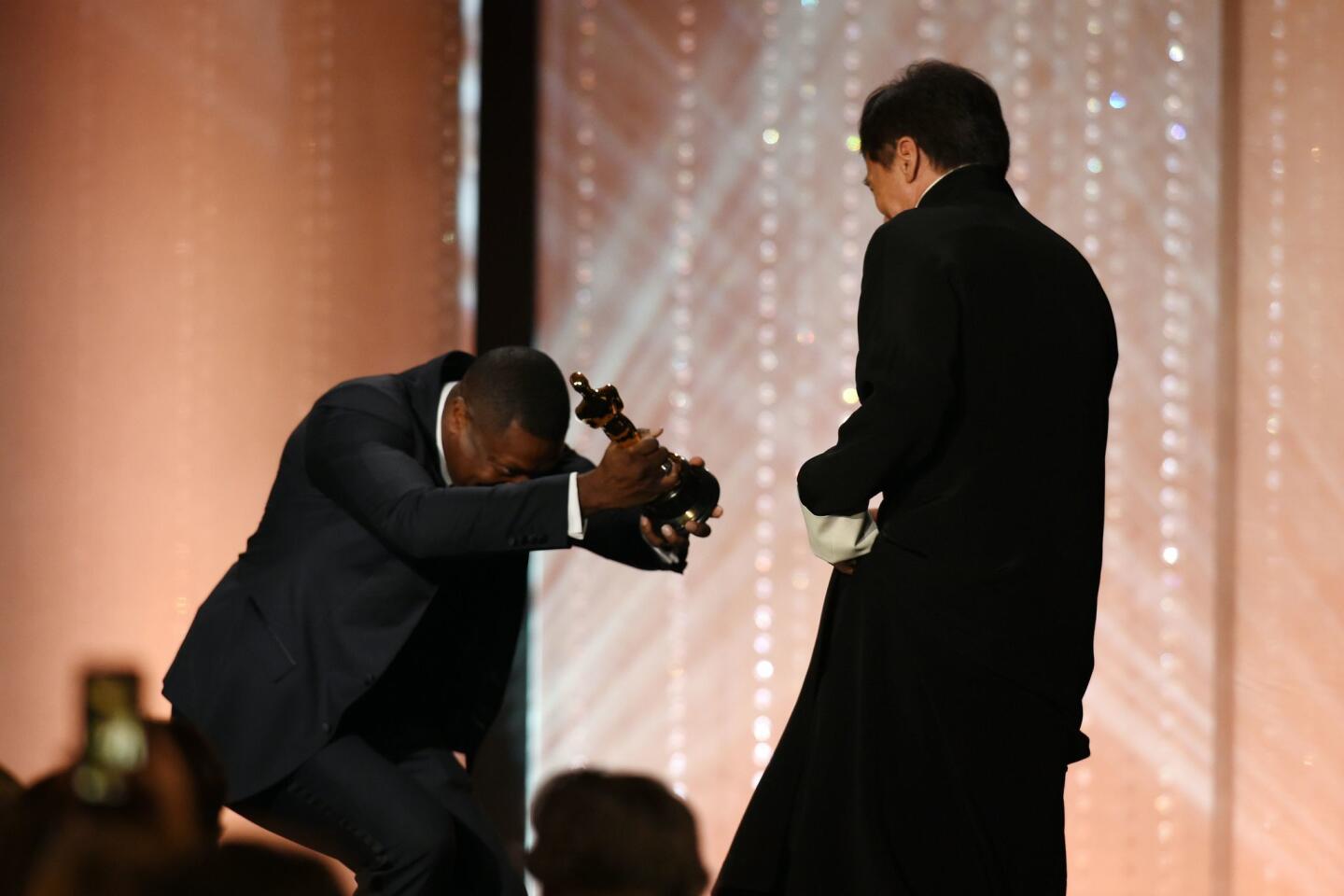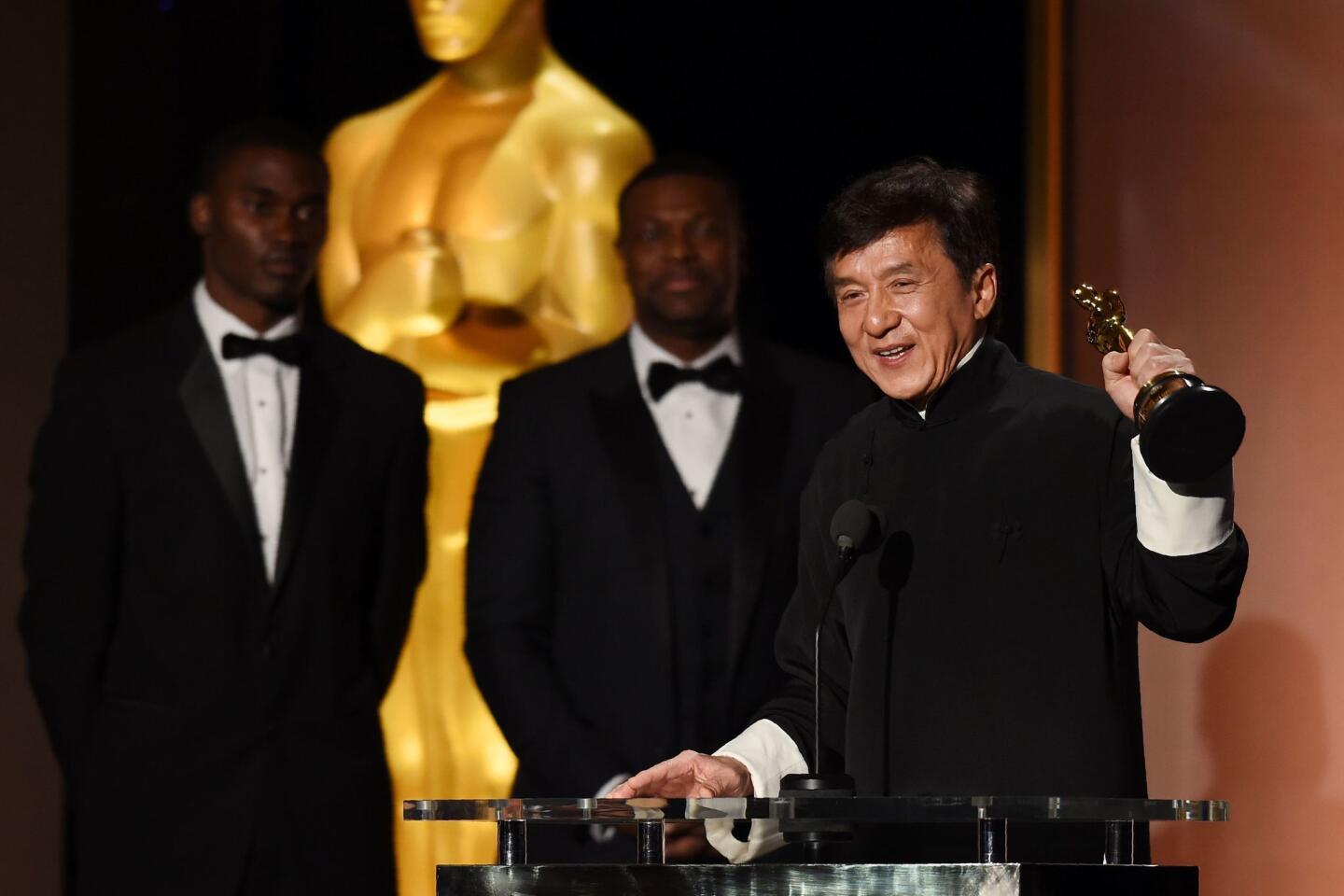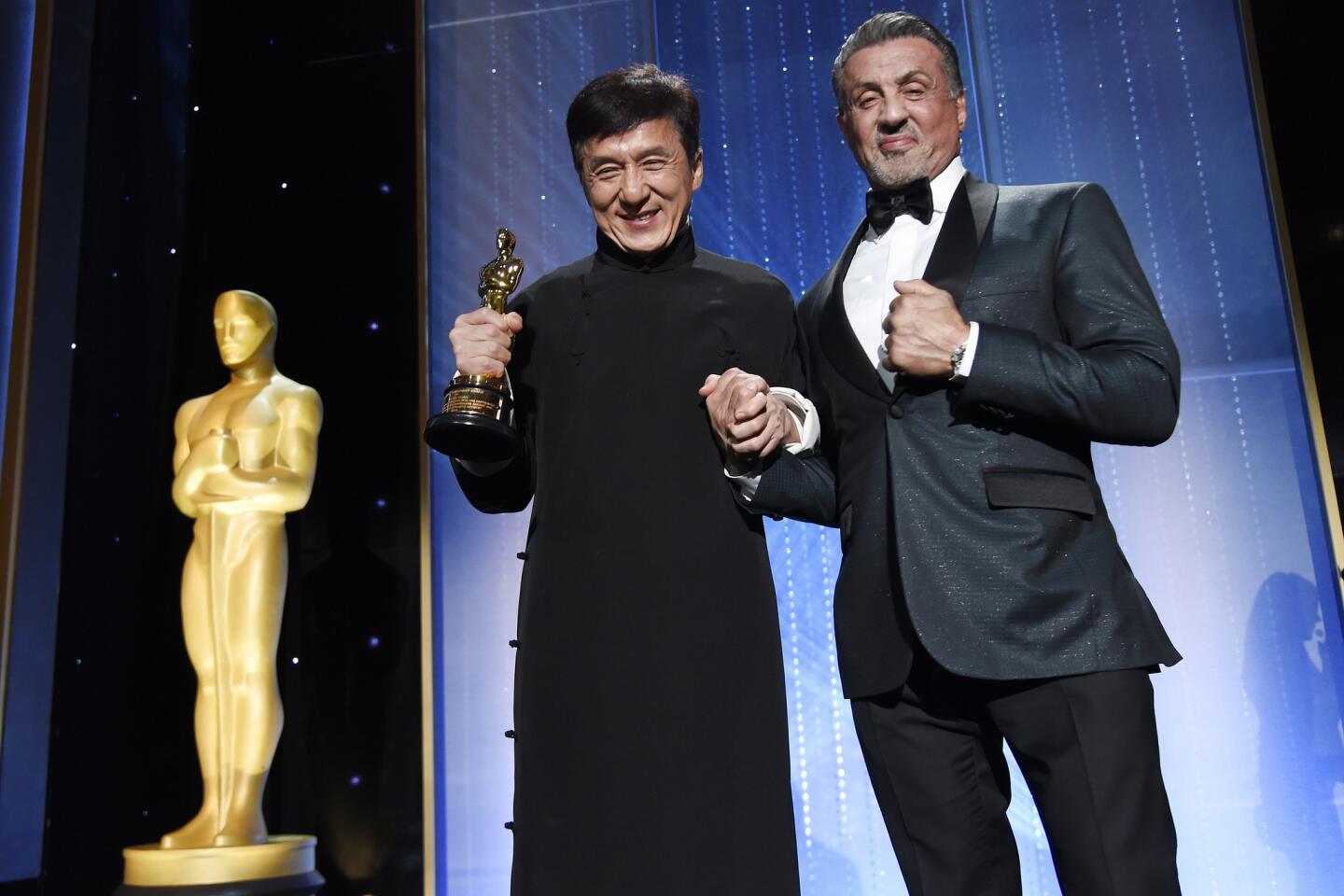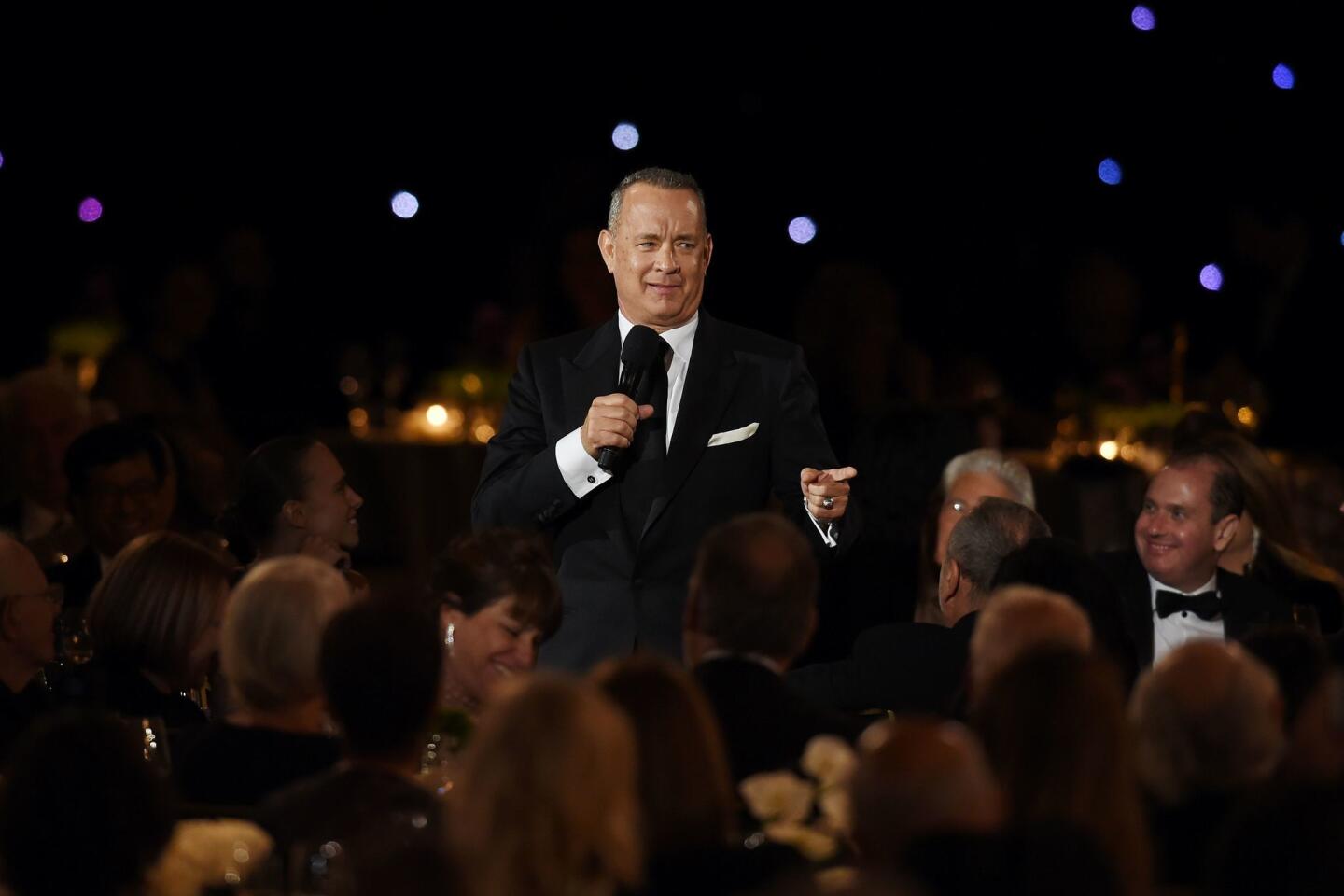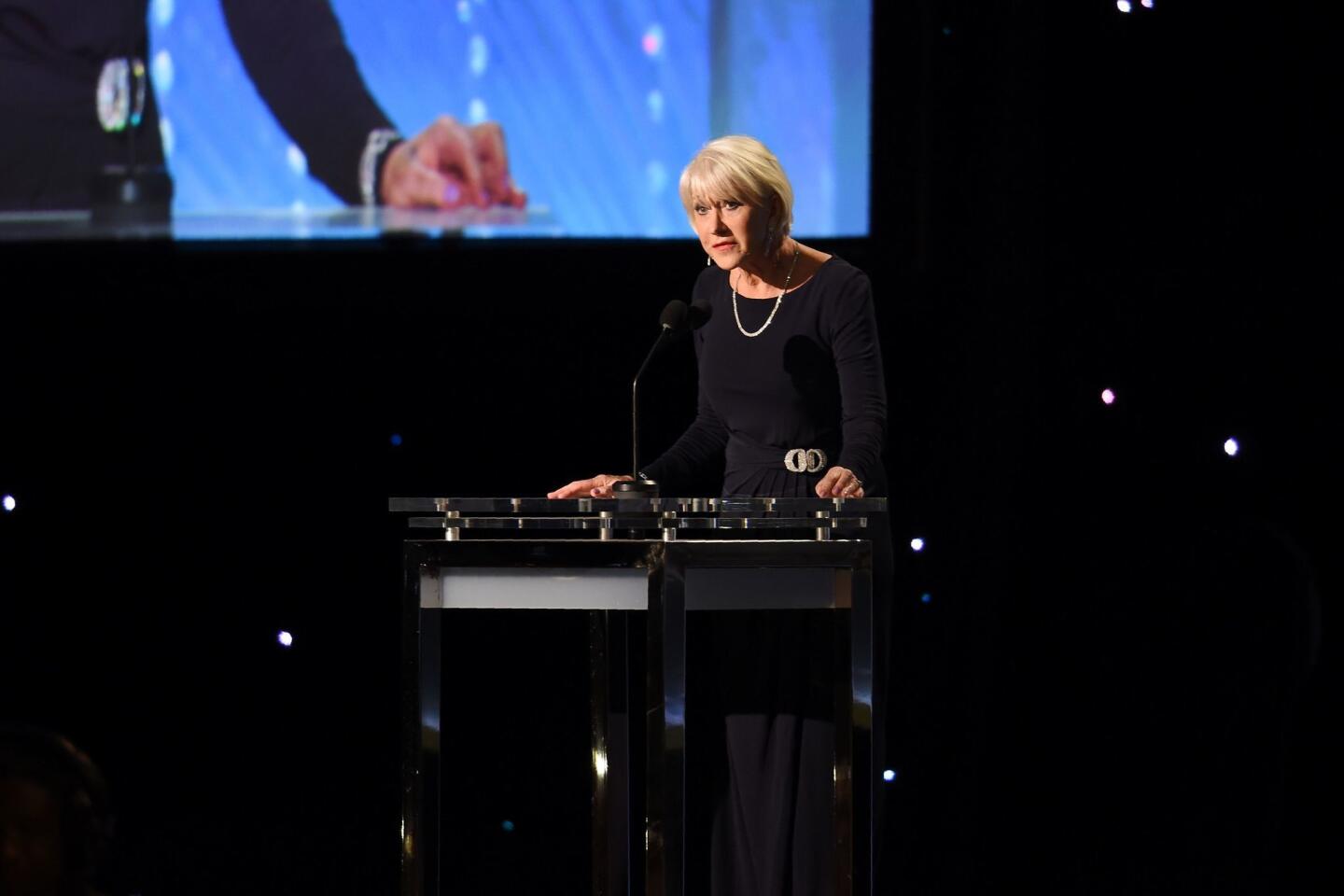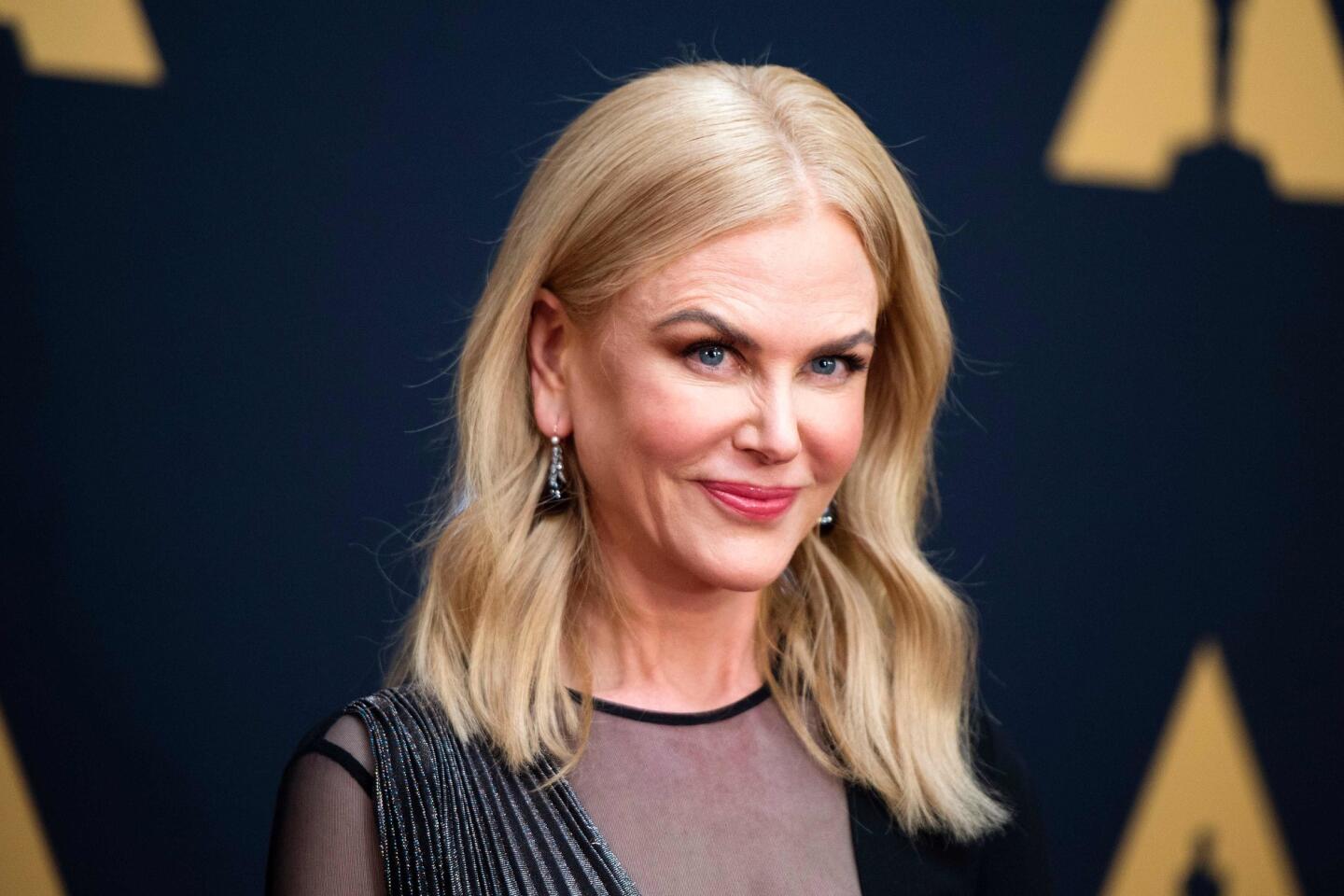Jackie Chan and other film luminaries feted at motion picture academy’s Governors Awards
- Share via
Months after weathering the tumultuous #OscarsSoWhite controversy — and just days after an earth-shaking and deeply divisive presidential election — Hollywood insiders largely set aside politics Saturday evening at the motion picture academy’s eighth Governors Awards to pay tribute to four very different talents: editor Anne V. Coates, casting director Lynn Stalmaster, documentary filmmaker Frederick Wiseman and action-comedy star Jackie Chan.
A chance to honor filmmaking luminaries for their lifetime contributions to the art form and a key early stop on the awards season campaign circuit, the ceremony at the Ray Dolby Ballroom in the Hollywood & Highland Center brought together many of the industry’s biggest power players as well as actors and filmmakers looking to gain traction in this year’s Oscar race.
While questions about Donald Trump’s ascension to the presidency abounded on the red carpet, despite the controversies that have roiled the industry and the country at large over the last year, the mood at the non-televised ceremony was generally relaxed and upbeat.
Director Judd Apatow and actress Leslie Mann were all smiles as they mingled with Broadway star Lin-Manuel Miranda. Damien Chazelle, director of the much buzzed-about romantic musical “La La Land,” chatted warmly with 20th Century Fox Chairman and Chief Executive Stacey Snider. Young stars like Felicity Jones, Emma Stone and Greta Gerwig rubbed elbows with older ones like Helen Mirren, Bruce Dern and Warren Beatty.
At one point, Tom Hanks and Annette Bening began spontaneously dancing between the tables as a live band played swing music — a moment that seemed to encapsulate the evening’s overall message that, for all the troubles in the world today, we still have the movies. (“The country is in ruins!” one young actress could be overheard saying with comically exaggerated horror during the cocktail reception, only to be reassured by her companion that at least her next film would still be coming out soon.)
“Tonight is an opportunity to remind us of what we love about movies — not just the fact that they can entertain and enlighten us but how, in certain times, they can connect us, change us and unify us,” academy President Cheryl Boone Isaacs told the crowd in her introductory remarks.
While last year’s Governors Awards, which honored Spike Lee, Debbie Reynolds and Gena Rowlands, were permeated with talk of the lack of diversity in the industry, Boone Isaacs pointed to progress that has since been made in terms of diversifying the ranks of the academy and launching initiatives aimed at bringing more inclusion to the industry.
“We’re not at the mountaintop yet, but we can see the peak up ahead,” she said. “Imagine the difference it will make when we open our industry to reflect the complete mosaic and diversity of our world and the movements and conversations it can trigger.”
Introduced by actor Jeff Bridges as “the master caster,” Stalmaster, 88, became the first person ever to win an Oscar for casting in recognition of his work on classic films such as “West Side Story,” “The Graduate,” “Harold and Maude” and “Tootsie.”
“I treasure the ongoing relationships I’ve had with so many actors: Jeff Bridges, Bruce Dern, Andy Garcia, Martin Landau, John Travolta and Christopher Reeve, who I loved as a human being as well as his talent,” Stalmaster said, his voice breaking with emotion. “So many gifted individuals have touched my life.”
A pioneer among female editors, the British Coates won an Oscar for her work on David Lean’s 1962 epic “Lawrence of Arabia” and was nominated for four other films including “The Elephant Man” and “Out of Sight.” Accepting her award, she told the crowd that, at age 90, she felt blessed to have had such a fulfilling career.
“Can you imagine a job where you’re actually paid to look into the eyes of George Clooney, Peter O’Toole, Richard Burton, Peter Finch, Sean Connery, Albert Finney, Clint Eastwood, Richard Gere, Daniel Craig, Arnold Schwarzenegger and Mr. ‘Five Shades of Grey’ himself, Jamie Dornan?” she said wryly.
Wiseman was honored for his work illuminating various social, cultural and government institutions in renowned documentary films like “Titicut Follies,” “High School,” “Law and Order,” “Public Housing” and “La Danse.”
Documentary filmmaker Alex Gibney told The Times that Wiseman’s fly-on-the-wall observational-style films offer compelling glimpses of everyday people struggling with varying degrees of success with societal issues.
“It’s really a revelation, and, even after Trump’s election, it gives you a tremendous sense of hope,” Gibney said. “Because you see this kind of willingness on a local level to get together and solve some problems.”
“I think it’s as important to document kindness, civility and generosity of spirit as it is to show cruelty, banality and indifference,” Wiseman, 86, said as he accepted the award.
Introducing Chan, whose blend of martial-arts prowess and Buster Keaton-style physical comedy has made him one of the biggest film stars on the global stage, Hanks acknowledged that the genres in which Chan works have “been for some reason, shall we say, historically underrepresented at the Oscars.”
Indeed, Chan, 62, said in his acceptance speech that getting an Oscar is the fulfillment of a dream he thought might never be realized — one that dated back at least 23 years to the first time he touched an Oscar at Sylvester Stallone’s house.
“Standing here is a dream,” he said warmly. “After 56 years in the film industry, making more than 200 films, breaking so many bones, finally this is mine.”
Twitter: @joshrottenberg
More to Read
Only good movies
Get the Indie Focus newsletter, Mark Olsen's weekly guide to the world of cinema.
You may occasionally receive promotional content from the Los Angeles Times.
